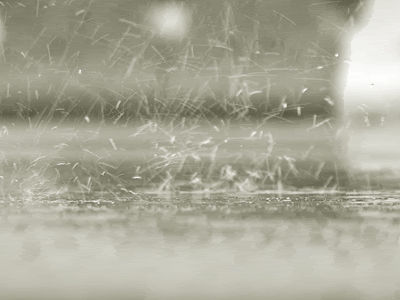i was surprised to see this article on the Headlines of The Star, this morning..... seriously, i wonder where does Tan Sri gets his data... and base on what parameters do he want to screen the students? MMSE? personality test??
and i think, sometimes, they tend to forget that doctors are human too, not God.... under such circumstances; not just the work load and ridiculously long on-call hours, these doctors are not just physically but also emotionally, mentally and spiritually challenged... knowing that you have done your very best, yet you could not help the patient further... losing hope, seeing deaths,... tears and disappointments,.. under such circumstances, anyone with a heart may break... many people falls into depression with MDD(Major Depressive Disorder)... should we deny this group of people treatment and the chance to live their dreams?
more importantly is when people break, they should be allowed a moment to weap, learn, heal, recover and rise again.. i have known doctors, good doctors, who had psychiatry illnesses like MDD and general anxiety, yet, having symptoms under controlled, they make a great doctor...
and i believe that medical school is just a small part of life, if we cannot handle the stress in med school, the future would be very difficult for us... passing exams is not the hardest thing in medical school, but rather, learning and obtaining as much skills, knowledge and wisdom as possible within these 5 years, so that we can use them to help our patients, heal illnesses, save lives - that is perhaps an even tougher thing to do...
give your very best for each patient..
do your best, and let God do the rest...
---------------------------------------------------------------------------------------------The Article from The Star:
Sunday November 30, 2008
At least five doctors to suffer from mental woes every month
By M. KRISHNAMOORTHY
KUALA LUMPUR: Every month, at least five doctors are found to be suffering from mental illnesses, director-general of health Tan Sri Dr Mohd Ismail Merican said.
He said these doctors were either psychotic or neurotic but still managed to get into medical schools because these schools were not screening students meticulously enough.
“When the doctors complete their two-year housemanship and their applications are submitted for registration with the Malaysian Medical Council (MMC), they fail to get registered.
“Their supervisors do not certify them as fit to be registered because of indiscipline and poor attitude arising from mental health problems.
“The mental cases range from psychotic to neurotic. Psychotic cases include delusions and hallucinations, and neurotic behaviour includes anxiety, fear and anger due to the competitive environment,” said Dr Ismail.
These medical graduates, totalling about 60 cases a year, are unable to cope with their housemanship as they may have been pressured by their parents to take up medicine.
Dr Ismail said it was disheartening to note this emerging trend due to an inefficient selection process, adding that the mental cases were referred to the Medical Review Panel (MRP).
Since many of these graduates have spent a lot of money on their medical education, the MRP may extend their housemanship and at the same time send them for psychiatric treatment.
“In the event they are assigned to work, they will be thoroughly supervised and counselled by experts and given light duties until their mental condition improves.
“I am not so sure whether we can identify those with attitude problems during an interview unless such problems are obvious,” Dr Ismail said at a forum on Training Future Doctors: Have we got it right?”
About 2,000 medical doctors are registered annually from 21 local medical schools and 400 recognised schools overseas.
Different medical schools around the world have different selection criteria for their students, Dr Ismail said.
However, he said that the ministry was also planning some form of examination to check their attitude, knowledge and experience after they complete their final examination.
Most of the mentally ill students, he said, could have undergone pressure and depression while studying and faced difficulty in coping in a hospital environment.
The other weakness was a lack of proficiency in the English language.
Higher Education director-general Prof Datuk Dr Radin Umar Radin Sohadi said the ministry was currently reviewing universities’ curricula to ensure high standards in medical education and training for doctors.
“Uppermost on our minds will be the safety and well-being of patients,” he said.

















































